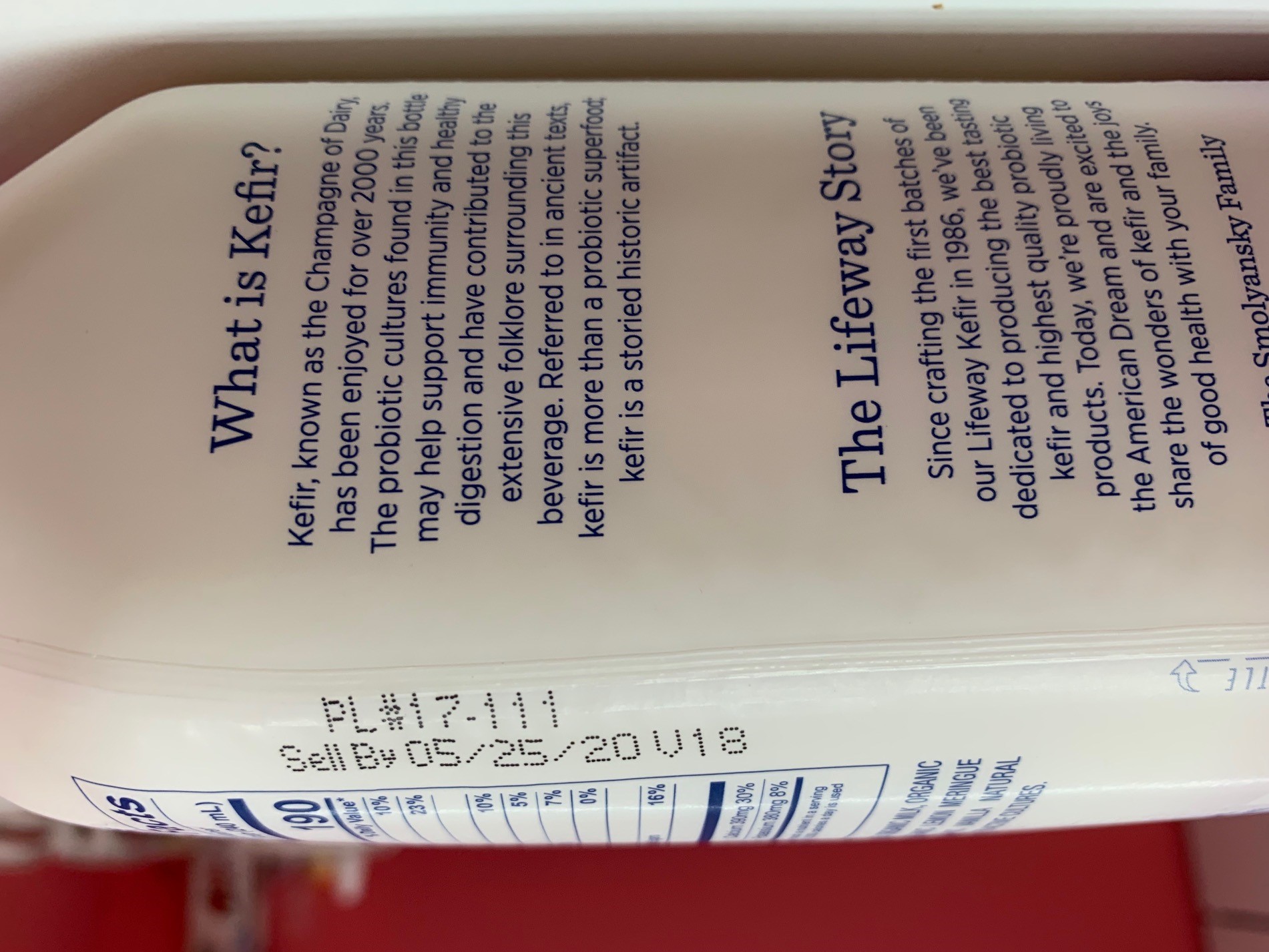Last Updated on January 6, 2025
Yes, you can drink kefir while pregnant. Kefir is a safe and nutritious beverage for expecting mothers.
Kefir, a fermented milk drink, has gained popularity among health-conscious individuals for its probiotic benefits. It is rich in beneficial bacteria and yeasts that promote a healthy gut microbiome. When consumed during pregnancy, kefir can contribute to a strong immune system, improved digestion, and enhanced nutrient absorption.
Additionally, kefir is a good source of protein, calcium, and vitamins b12 and k2, all of which are essential for the healthy development of the fetus and maintaining the mother’s wellbeing. However, as with any food or drink during pregnancy, moderation is key. It is advisable to consult with a healthcare provider to ensure kefir is suitable for your individual circumstances.

Credit: lifewaykefir.com
Benefits Of Kefir During Pregnancy
Kefir, a fermented milk drink, has gained popularity in recent years for its potential health benefits. But what about drinking kefir during pregnancy? Is it safe? Can it offer any advantages? Let’s dive in and explore the benefits of kefir during pregnancy.
Supports Gut Health During Pregnancy
- Kefir contains beneficial bacteria, known as probiotics, which can support gut health during pregnancy.
- These probiotics help maintain a healthy balance of bacteria in the digestive system, promoting optimal digestion and nutrient absorption.
- A healthy gut can also help prevent common digestive issues such as bloating, gas, and indigestion.
Provides Essential Nutrients For Both Mother And Baby
- Kefir is rich in essential nutrients such as calcium, protein, and vitamins like b12 and k2.
- Calcium is vital for the development of strong bones and teeth in both the mother and the baby.
- Protein supports the growth and repair of cells, aiding in the development of the baby’s organs and tissues.
- Vitamin b12 and k2 contribute to overall health and can help prevent deficiencies in both the mother and the baby.
Boosts The Immune System
- During pregnancy, the immune system undergoes changes to protect both the mother and the developing baby.
- Kefir’s probiotics have been shown to enhance the body’s natural defense mechanisms, boosting the immune system.
- A strong immune system can help prevent common infections and illnesses, benefiting the health of both mother and baby.
Helps With Digestion And Constipation
- Pregnancy often comes with digestive challenges such as slowed digestion and constipation.
- The probiotics present in kefir can help regulate digestion, promoting regular bowel movements and reducing the risk of constipation.
- Additionally, kefir’s calcium content can aid in preventing pregnancy-related constipation.
Incorporating kefir into your diet during pregnancy can offer numerous benefits, supporting your gut health, providing essential nutrients for both you and your baby, boosting your immune system, and assisting with digestion and constipation. As always, it’s important to discuss dietary changes with your healthcare provider to ensure it aligns with your specific needs and medical history.
Cheers to a healthy pregnancy!
Safety Concerns And Risks Of Drinking Kefir While Pregnant
Can You Drink Kefir While Pregnant?
Pregnancy is a time when every dietary choice becomes crucial, and the same goes for consuming kefir. This fermented milk drink is packed with beneficial bacteria and numerous health benefits, but is it safe for expecting mothers? In this section, we will explore the safety concerns and risks of drinking kefir while pregnant.
Potential Presence Of Harmful Bacteria
- Kefir is an unpasteurized product, which means it could potentially harbor harmful bacteria like salmonella, listeria, or e. coli.
- Pregnant women are at a higher risk of developing severe complications from foodborne illnesses, making it essential to avoid any potential sources of harmful bacteria.
- It is crucial to ensure that any kefir consumed during pregnancy is made from pasteurized milk or undergoes a pasteurization process to eliminate the risk of harmful bacteria.
Allergic Reactions Or Sensitivities
- Some individuals may have allergies or sensitivities to kefir, particularly to the proteins present in milk.
- If you have a known dairy allergy or lactose intolerance, it is advisable to consult with your healthcare provider before incorporating kefir into your diet during pregnancy.
- Allergic reactions to kefir can range from mild symptoms like hives and digestive issues to more severe reactions, such as difficulty breathing or anaphylaxis.
Increased Risk Of Foodborne Illnesses
- Pregnancy weakens the immune system, making pregnant women more susceptible to foodborne illnesses caused by bacteria, viruses, or parasites.
- Although kefir can have health benefits, the risk of consuming unpasteurized or contaminated kefir outweighs the potential advantages during pregnancy.
- It is recommended to opt for pasteurized kefir or consult with your healthcare provider for guidance on safe alternatives.
Interactions With Certain Medications
- Kefir contains live bacteria cultures that can interact with certain medications, potentially reducing their effectiveness.
- If you are taking antibiotics, antifungal medications, or any medications that may be affected by probiotics, it is crucial to speak with your healthcare provider before consuming kefir during pregnancy.
- Your healthcare provider can provide guidance on whether the potential benefits of kefir outweigh any potential interaction risks.
While kefir offers numerous health benefits, it is important to consider the potential safety concerns and risks associated with consuming it during pregnancy. The best course of action is to consult with your healthcare provider, who can assess your individual situation and provide personalized advice.
Remember, the health and well-being of both you and your baby are of utmost importance during this precious time.
Frequently Asked Questions On Can You Drink Kefir While Pregnant?
Can I Drink Kefir While Pregnant?
Yes, you can safely consume kefir during pregnancy as it is a good source of probiotics and essential nutrients.
Is Drinking Kefir During Pregnancy Beneficial?
Drinking kefir during pregnancy can help support a healthy digestive system and immune function for both the mother and baby.
Are There Any Risks Associated With Drinking Kefir While Pregnant?
In general, there are no known risks associated with drinking kefir during pregnancy. However, it’s important to choose pasteurized kefir to avoid any potential harmful bacteria.
How Much Kefir Can I Drink During Pregnancy?
It is recommended to consume 1-2 servings of kefir per day during pregnancy, as part of a balanced diet.
Can Kefir Help With Common Pregnancy Symptoms?
Yes, kefir can help alleviate some common pregnancy symptoms like constipation and nausea, thanks to its probiotic content and soothing effect on the digestive system.
Conclusion
To sum up, drinking kefir while pregnant can be a safe and beneficial choice. Kefir is packed with essential nutrients like calcium, protein, and probiotics that can support both the expectant mother and the developing baby. Its probiotic content can help improve digestion and strengthen the immune system, reducing the risk of constipation and certain infections.
Kefir also possesses antibacterial properties that can combat harmful bacteria in the gut. However, moderation is key, as excessive kefir consumption may lead to gastrointestinal discomfort due to its fermentation process. It is important to consult with a healthcare provider before adding kefir to your diet, especially if you have specific dietary restrictions or underlying health conditions.
With proper guidance, incorporating kefir into a balanced pregnancy diet can contribute to a healthier pregnancy journey. Stay informed and make informed choices for the well-being of both you and your baby.











